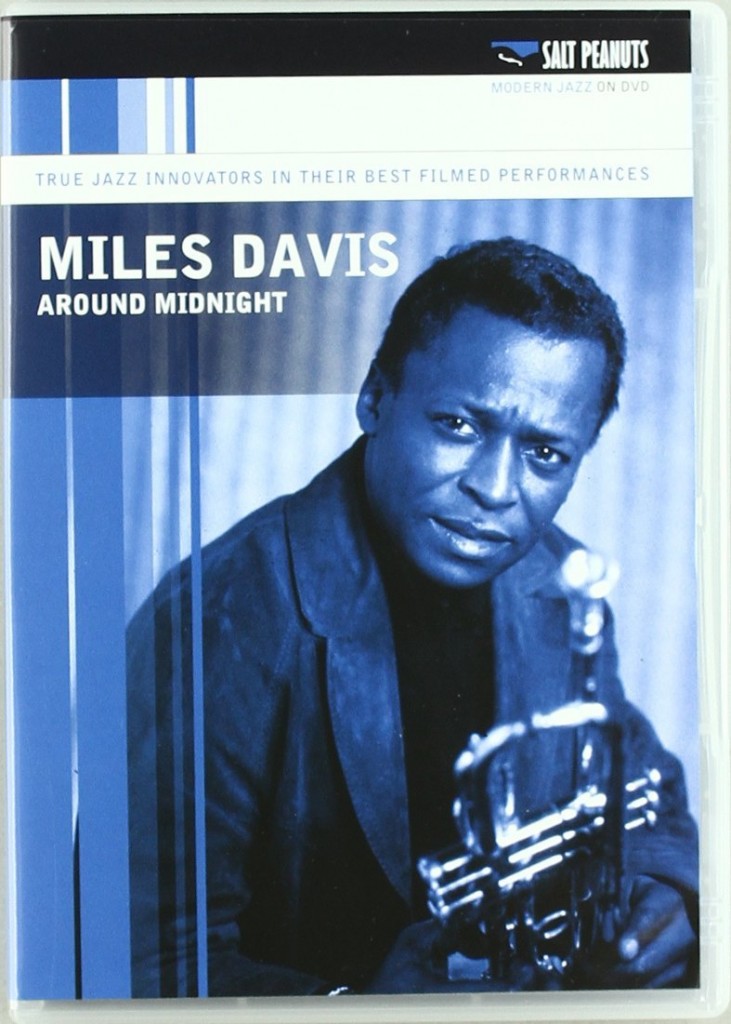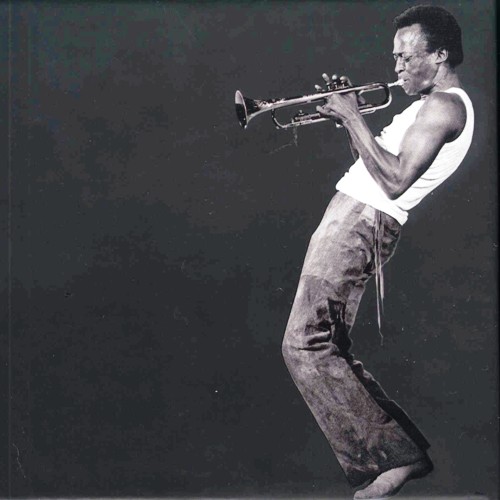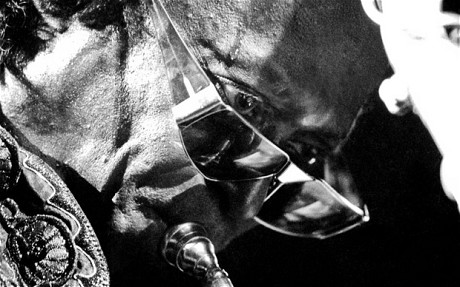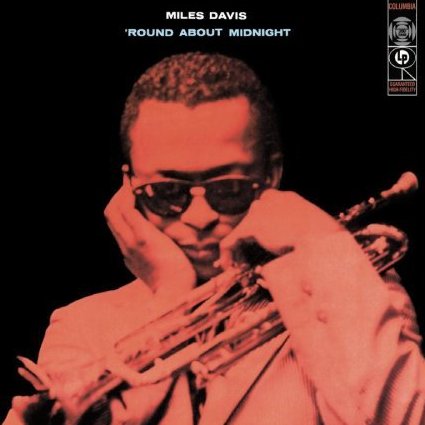Miles Davis (May 26, 1926 – September 28, 1991) (read more)“Don’t play what’s there; play what’s not there.” |
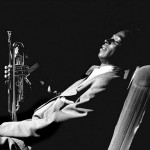 |
| James Charles Rodgers (September 8, 1897 – May 26, 1933), known as Jimmie Rodgers, was an American country singer in the early 20th century known most widely for his rhythmic yodeling. Among the first country music superstars and pioneers, Rodgers was also known as The Singing Brakeman, The Blue Yodeler, and The Father of Country Music. | 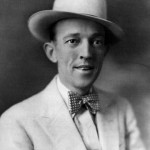 |
| Mark Lavon “Levon” Helm (May 26, 1940 – April 19, 2012) (read more)
American rock multi-instrumentalist and actor who achieved fame as the drummer and frequent lead and backing vocalist for The Band.Helm was known for his deeply soulful, country-accented voice, and creative drumming style highlighted on many of the Band’s recordings, such as “The Weight”, “Up on Cripple Creek”, “Ophelia” and “The Night They Drove Old Dixie Down”. His 2007 comeback album Dirt Farmer earned the Grammy Award for Best Traditional Folk Album in February 2008, and in November of that year, Rolling Stone magazine ranked him #91 in the list of The 100 Greatest Singers of All Time. In 2010, Electric Dirt, his 2009 follow-up to Dirt Farmer, won the first ever Grammy Award for Best Americana Album, an inaugural category in 2010. In 2011, his live album Ramble at the Ryman was nominated for the Grammy in the same category and won. |
 |
| Michael “Mick” Ronson (26 May 1946 – 29 April 1993) was an English guitarist, songwriter, multi-instrumentalist, arranger and producer. He is best known for his work with David Bowie, as one of The Spiders from Mars. Ronson was a busy session musician who recorded with artists as diverse as Bowie and Morrissey, as well as engagements as a sideman in touring bands with performers such as Van Morrison. |  |
| Bruce Springsteen – 26 May 1997 – Palais Des Congrès De Paris, Paris (read & listen) |  |
Spotify Playlist -May 26 |
|
Tag Archives: Miles Davis
Miles Davis: Around Midnight, live 1967 video
At its heart, jazz thrives on bold, sensitive interaction in the moment, and Live in Europe 1967 represents the pinnacle of that practice.
~Hank Shteamer (pitchfork.com)
This famous bootleg DVD was finally released as part of LIVE in Europe 1967: The Bootleg Series Vol. 1
in 2011.
Miles Davis second great quitet:
- Bass – Ron Carter
- Drums – Tony Williams
- Piano – Herbie Hancock
- Saxophone [Tenor] – Wayne Shorter
- Trumpet – Miles Davis
Continue reading Miles Davis: Around Midnight, live 1967 video
May 13 in music history
| Happy birthday: Stevie Wonder (born May 13, 1950) (read more)
Do you know, it’s funny, but I never thought of being blind as a disadvantage, and I never thought of being black as a disadvantage. — |
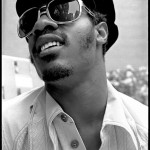 |
| Donald Dunn passed away in 2012 – 2 year ago (read more)
As the bassist for Booker T. & the MG’s, Donald “Duck” Dunn became, like James Jamerson at Motown, the man who provided a groove for an entire generation to dance to. In Dunn’s case it was the legendary Memphis record label Stax/Volt, where he laid down basslines for soul stars such as Otis Redding, Wilson Pickett, and Albert King, helping to create one of the largest bodies of soul and R&B music that exists. |
 |
| “Daddy-O” Dewey Phillips (May 13, 1926 – September 28, 1968) was one of rock ‘n’ roll’s pioneering disk jockeys, along the lines of Cleveland’s Alan Freed, before Freed came along. |  |
| Ian Ernest Gilmore “Gil” Evans (né Green) (May 13, 1912 – March 20, 1988) was a jazz pianist, arranger, composer and bandleader, active in the United States. He played an important role in the development of cool jazz, modal jazz, free jazz and jazz fusion, and collaborated extensively with Miles Davis. |  |
| Chesney Henry “Chet” Baker, Jr. (December 23, 1929 – May 13, 1988) was an American jazz trumpeter, flugelhornist and vocalist. |  |
| James Robert Wills (March 6, 1905 – May 13, 1975), better known as Bob Wills, was an American Western swing musician, songwriter, and bandleader. Considered by music authorities as the co-founder of Western swing, he was universally known as the King of Western Swing. | 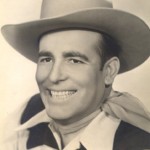 |
Spotify Playlist – May 13
|
|
Today: Miles Davis passed away in 1991 22 years ago

“Don’t play what’s there; play what’s not there.”
― Miles Davis“Good music is good no matter what kind of music it is.”
― Miles Davis
From Wikipedia:
| Birth name | Miles Dewey Davis III |
|---|---|
| Born | May 26, 1926 Alton, Illinois, United States |
| Died | September 28, 1991 (aged 65) Santa Monica, California, United States |
| Genres | Jazz, hard bop, bebop, cool jazz, modal, fusion, third stream, jazz-funk, jazz rap |
| Occupations | Bandleader, composer, trumpeter, artist |
| Instruments | Trumpet, flugelhorn, piano,organ |
| Years active | 1944–1975, 1980–1991 |
| Labels | Capitol Jazz/EMI,Columbia/CBS, Warner Bros.Dial Records |
| Associated acts | Billy Eckstine, Charlie Parker,Miles Davis Quintet, Gil Evans |
| Website | www.milesdavis.com |
Miles Dewey Davis III (May 26, 1926 – September 28, 1991) was an American jazz musician, trumpeter, bandleader, and composer. Widely considered one of the most influential musicians of the 20th century, Miles Davis was, with his musical groups, at the forefront of several major developments in jazz music, including bebop, cool jazz, hard bop, modal jazz, and jazz fusion.
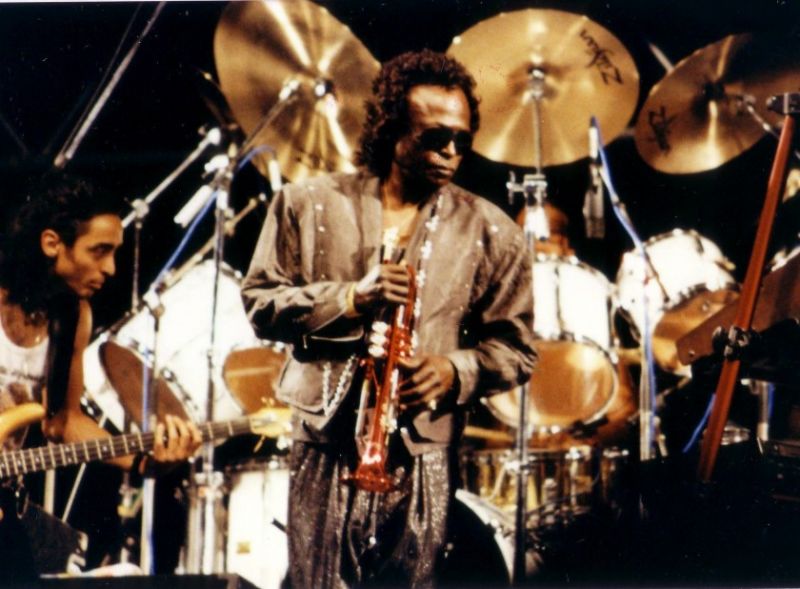
On October 7, 2008, his 1959 album Kind of Blue received its fourth platinum certification from the Recording Industry Association of America (RIAA), for shipments of at least four million copies in the United States. Miles Davis was inducted into the Rock and Roll Hall of Fame in 2006. Davis was noted as “one of the key figures in the history of jazz”. On December 15, 2009, the U.S. House of Representatives passed a symbolic resolution recognizing and commemorating the album Kind of Blue on its 50th anniversary, “honoring the masterpiece and reaffirming jazz as a national treasure.”
From allmusic.com – William Ruhlmann:
Throughout a professional career lasting 50 years, Miles Davis played the trumpet in a lyrical, introspective, and melodic style, often employing a stemless Harmon mute to make his sound more personal and intimate. But if his approach to his instrument was constant, his approach to jazz was dazzlingly protean. To examine his career is to examine the history of jazz from the mid-’40s to the early ’90s, since he was in the thick of almost every important innovation and stylistic development in the music during that period, and he often led the way in those changes, both with his own performances and recordings and by choosing sidemen and collaborators who forged new directions. It can even be argued that jazz stopped evolving when Davis wasn’t there to push it forward.
… read more over @ allmusic.com
So What:
Legacy, influence & awards:
Miles Davis is regarded as one of the most innovative, influential and respected figures in the history of music. He has been described as “one of the great innovators in jazz”. The Rolling Stone Encyclopedia of Rock & Roll noted “Miles Davis played a crucial and inevitably controversial role in every major development in jazz since the mid-’40s, and no other jazz musician has had so profound an effect on rock. Miles Davis was the most widely recognized jazz musician of his era, an outspoken social critic and an arbiter of style—in attitude and fashion—as well as music”. His album Kind of Blue is the best-selling album in the history of jazz music. On November 5, 2009, Rep. John Conyers of Michigan sponsored a measure in the United States House of Representatives to recognize and commemorate the album on its 50th anniversary. The measure also affirms jazz as a national treasure and “encourages the United States government to preserve and advance the art form of jazz music.” It passed, unanimously, with a vote of 409–0 on December 15, 2009.
His approach, owing largely to the African American performance tradition that focused on individual expression, emphatic interaction, and creative response to shifting contents, had a profound impact on generations of jazz musicians.
In 1986, the New England Conservatory awarded Miles Davis an Honorary Doctorate for his extraordinary contributions to music. Since 1960 the National Academy of Recording Arts and Sciences (NARAS) has honored him with eight Grammy Awards, a Grammy Lifetime Achievement Award, and three Grammy Hall of Fame Awards. In 2010, Moldejazz premiered a play called Driving Miles, which focused on a landmark concert Davis performed in Molde, Norway, in 1984.
All Blues – 1964:
- Winner; Down Beat Reader’s Poll Best Trumpet Player 1955
- Winner; Down Beat Reader’s Poll Best Trumpet Player 1957
- Winner; Down Beat Reader’s Poll Best Trumpet Player 1961
- Grammy Award for Best Jazz Composition Of More Than Five Minutes Duration for Sketches of Spain (1960)
- Grammy Award for Best Jazz Performance, Large Group Or Soloist With Large Group for Bitches Brew (1970)
- Grammy Award for Best Jazz Instrumental Performance, Soloist for We Want Miles (1982)
- Sonning Award for Lifetime Achievement In Music (1984; Copenhagen, Denmark)
- Doctor of Music, honoris causa (1986; New England Conservatory)
- Grammy Award for Best Jazz Instrumental Performance, Soloist for Tutu (1986)
- Grammy Award for Best Jazz Instrumental Performance, Soloist for Aura (1989)
- Grammy Award for Best Jazz Instrumental Performance, Big Band for Aura (1989)
- Grammy Lifetime Achievement Award (1990)
- Australian Film Institute Award for Best Original Music Score for Dingo, shared with Michel Legrand (1991)
- Knight of the Legion of Honor (July 16, 1991; Paris)
- Grammy Award for Best R&B Instrumental Performance for Doo-Bop (1992)
- Grammy Award for Best Large Jazz Ensemble Performance for Miles & Quincy Live at Montreux (1993)
- Hollywood Walk of Fame Star (February 19, 1998)
- Rock and Roll Hall of Fame Induction (March 13, 2006)
- Hollywood’s Rockwalk Induction (September 28, 2006)
- RIAA Quadruple Platinum for Kind of Blue
- St. Louis Walk of Fame
I know what I’ve done for music, but don’t call me a legend. Just call me Miles Davis.
Album of the day: ‘Round Midnight (1956):
Other September 27:
Continue reading Today: Miles Davis passed away in 1991 22 years ago
Today: The late Miles Davis was born in 1926 – 87 years ago
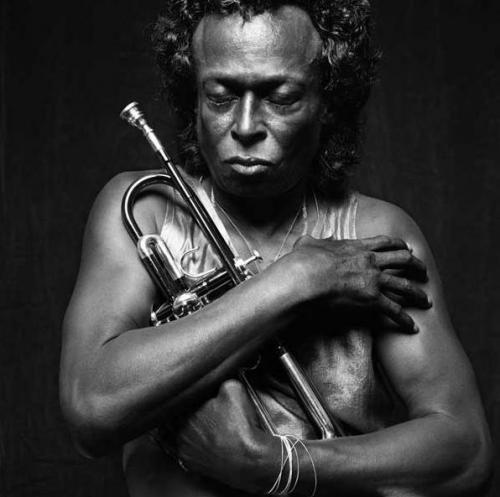
Don’t play what’s there, play what’s not there.
– Miles Davis
Miles Davis is my definition of cool.
– Bob Dylan
I discovered Miles Davis through Prince. Prince talked about Miles and they played together, they played each others songs and I got curious. My first meet with Miles Davis was in the eighties, the years that some hard-core Miles fans consider the decline or the lost years. Not for me, I love 80s Miles Davis, and what I heard made me go back in time. What a world that opened up!
I got to see him in concert, once in 1988. To a young and recent fan it was mind-blowing!
Tutu, Stuttgart 1988:

From Allmusic:
Throughout a professional career lasting 50 years, Miles Davis played the trumpet in a lyrical, introspective, and melodic style, often employing a stemless Harmon mute to make his sound more personal and intimate. But if his approach to his instrument was constant, his approach to jazz was dazzlingly protean. To examine his career is to examine the history of jazz from the mid-’40s to the early ’90s, since he was in the thick of almost every important innovation and stylistic development in the music during that period, and he often led the way in those changes, both with his own performances and recordings and by choosing sidemen and collaborators who forged new directions. It can even be argued that jazz stopped evolving when Davis wasn’t there to push it forward.
– William Ruhlmann
The best Jazz song in music history, So What:
I have choses On The Corner (1972) as today’s album, my favorite Miles record is Kind of Blue, but I thought it would be nice to focus on one of my other favorites. It is a an album that was loathed when it was released. Miles Davis was accused of selling out (just as he was in the 80s). When listening to the album today it is hard to understand what he was selling out to…
At the time, everyone loathed Miles Davis’s On the Corner – even the people who played on it. But now, some of the coolest names in music are proud to name it as a major influence. – Paul Tingen (The Guardian)
other 26 May:
Continue reading Today: The late Miles Davis was born in 1926 – 87 years ago

